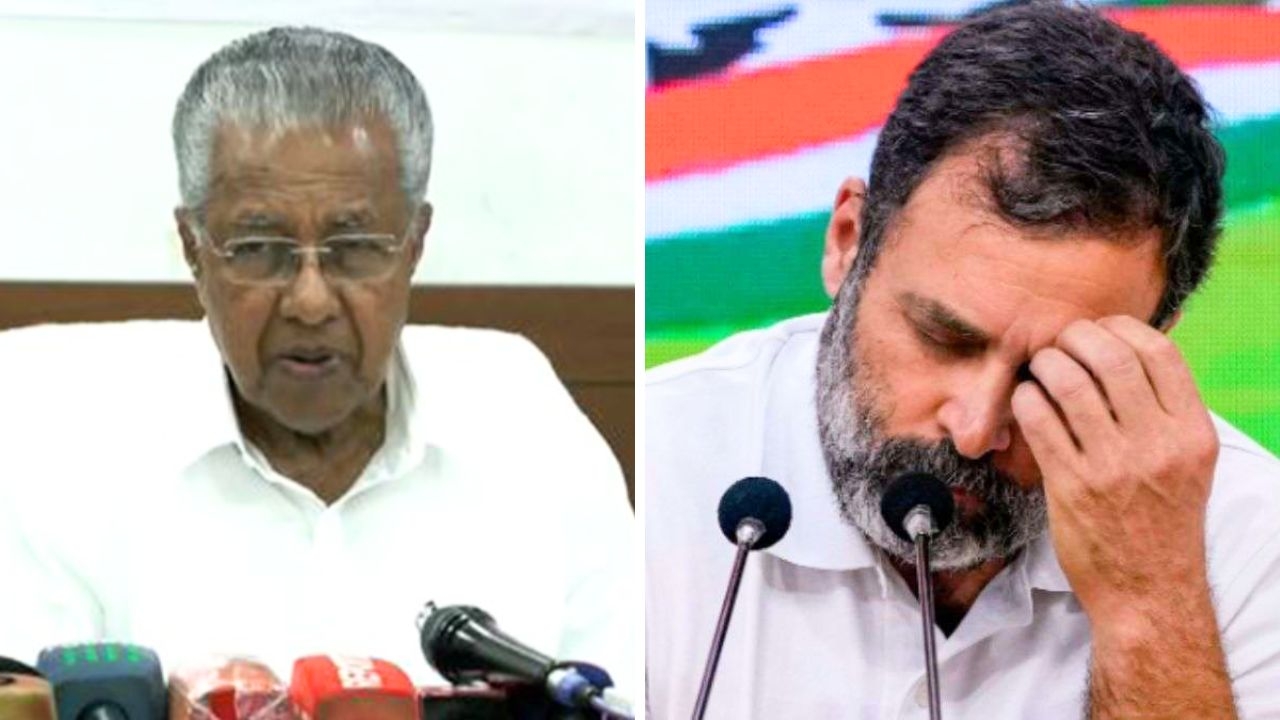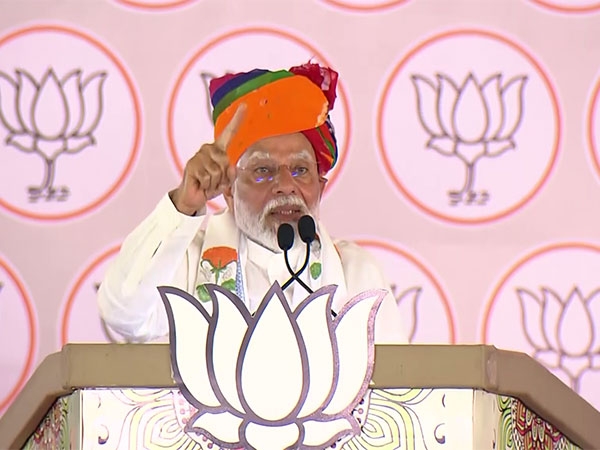How women once got naked and wrote poem on their back to raise awareness about PTSD to support their husband

As the name suggests, Post-traumatic stress disorder (PTSD), is an anxiety disorder that occurs following a major trauma. A disorder which is characterised by failure to recover after experiencing or witnessing a terrifying event.
It affects up to 17.1 percent of veterans and up to one-third of first responders, the symptoms include intrusive memories of the said stressful event, flashbacks, nightmares, and intense distress.
According to a new study, a scientist finds that taking Class A ecstasy drug, MDMA, can help veterans recover from Post Traumatic Stress Disorder (PTSD).
Scientists in the United States have combined MDMA treatment with psychotherapy in an experimental pilot study that involved 22 military veterans, three firefighters, and a police officer.
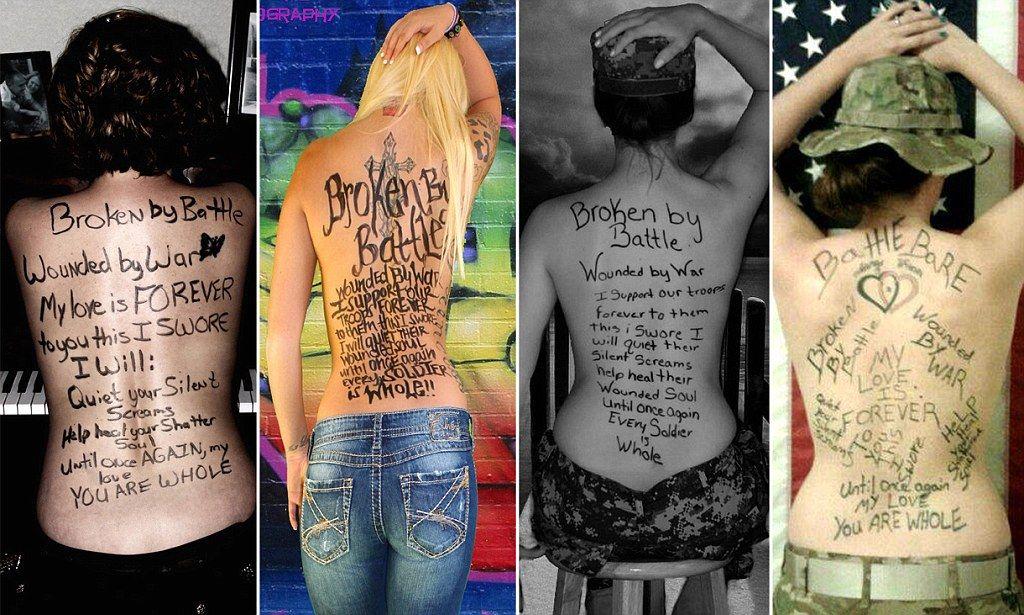
Women who are the wives of military men were always affected by their husband's PTSD.
Ashley Wise started the movement Battling B.A.R.E.
To support her husband, Ashley, who was very much affected by this, wanted to do and show how much this issue meant to her. She wrote a poem on her bare back and photographed the poem on herself as she held her husband's rifle above her head.
It was an action that gave birth to her movement Battling B.A.R.E.
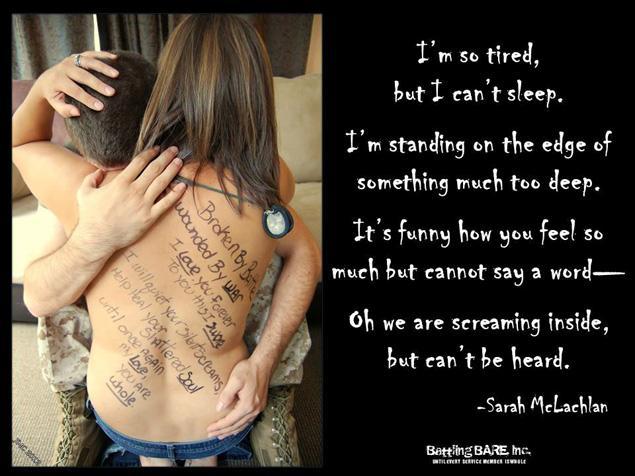
She created a Facebook group and other women suffering from similar circumstances began to post pictures of their own message.
As a sign of love and respect for their husbands, women took off their clothes and wrote a moving poem on their bareback.


The poem reads:
“Broken by battle, Wounded by war,
I love you forever, To you this I swore:
I will quiet your silent screams, Help heal your shattered soul
Until once again, my love, you are whole.”
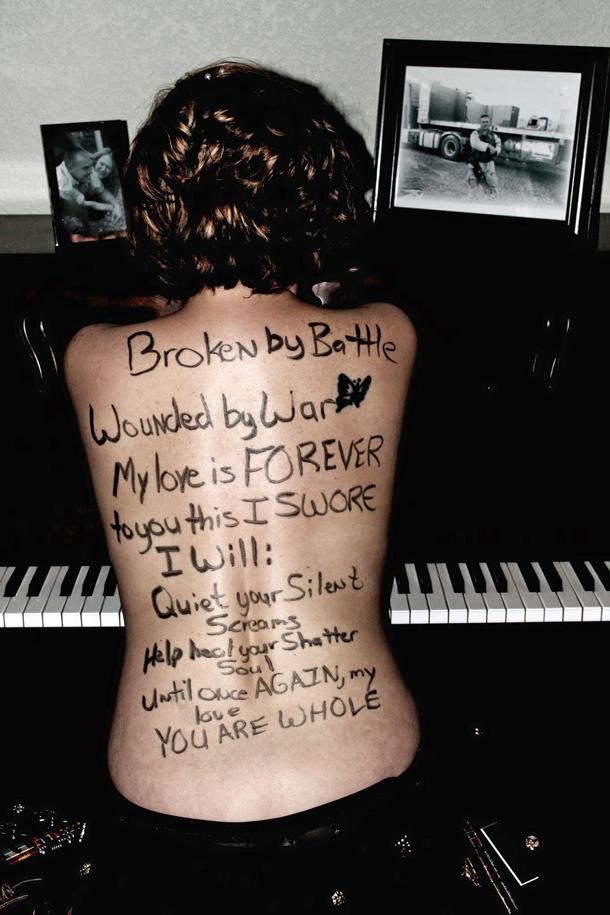
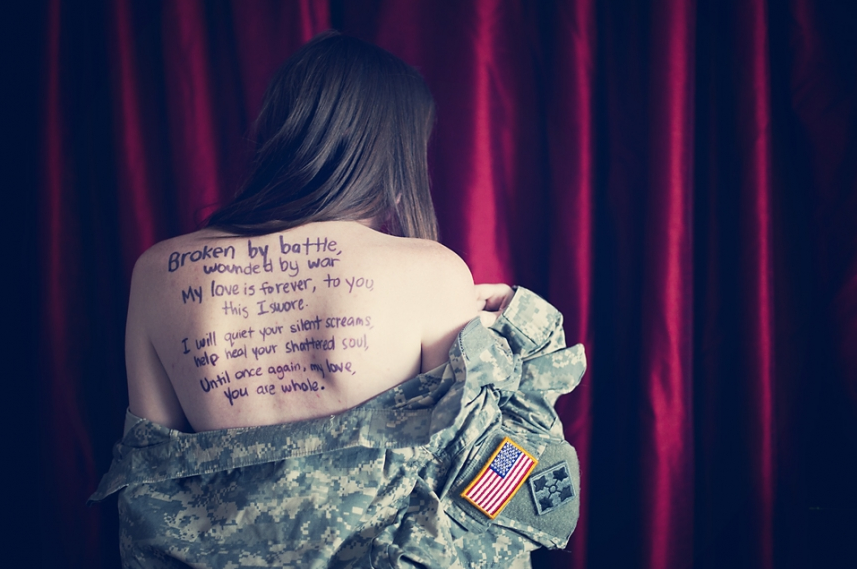
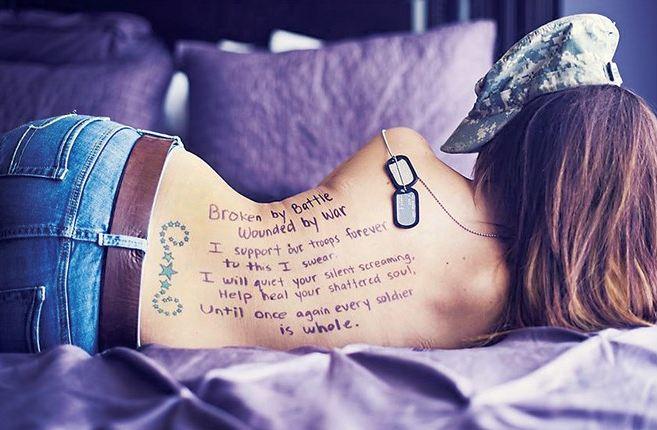
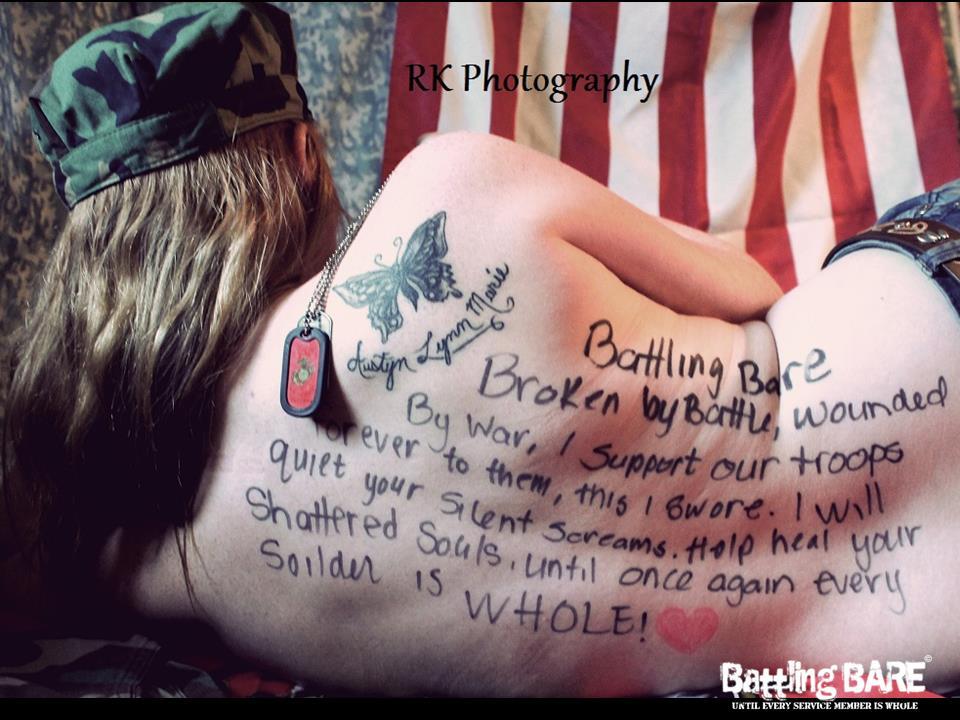
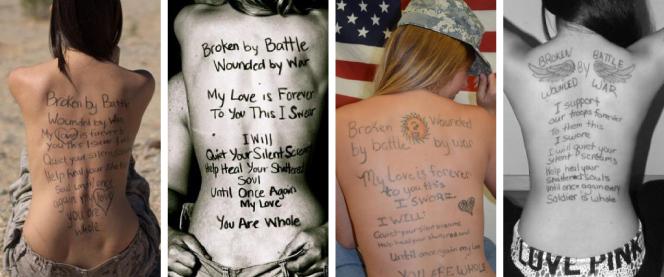
PTSD Causes
Type of events causing PTSD:
Major accidents
Violent assaults, such as sexual assault, mugging or robbery etc
Sexual abuse, or any kind of mental violence
Witnessing unexpected deaths
Military operations
Being held hostage or any kind of stressful activity
Terrorist attacks
Natural disasters such as severe floods, earthquakes or tsunamis
Symptoms
People with PTSD often relive the traumatic event through nightmares and flashbacks and may experience feelings of isolation, irritability, and guilt.
They also face issues like lack of sleeping, such as insomnia, and find concentrating difficult.
These symptoms are often severe and persistent enough to have a significant impact on the person’s day-to-day life.
Treatment
PTSD can be successfully treated, even when it develops many years after a traumatic event.
Any treatment depends on the severity of symptoms and how soon they occur after the traumatic event. Any of the following treatment options may be recommended:
Watchful waiting – monitoring your symptoms to see whether they improve or get worse without treatment
Psychotherapy – such as trauma-focused cognitive behavioral therapy (CBT) or eye movement desensitisation and reprocessing (EMDR)
Antidepressants – such as paroxetine or mirtazapine.
Also Read: New study reveals veterans living with PTSD 'cured' with ecstasy treatment in weeks
First published: 2 May 2018, 17:49 IST
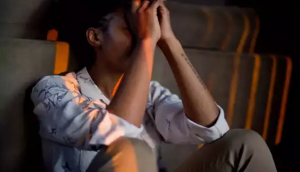

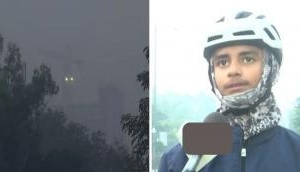

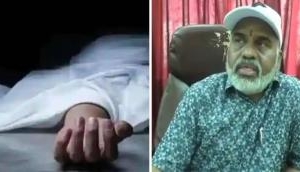
![BJP's Kapil Mishra recreates Shankar Mahadevan’s ‘Breathless’ song to highlight Delhi pollution [WATCH] BJP's Kapil Mishra recreates Shankar Mahadevan’s ‘Breathless’ song to highlight Delhi pollution [WATCH]](http://images.catchnews.com/upload/2022/11/03/kapil-mishra_240884_300x172.png)

![Anupam Kher shares pictures of his toned body on 67th birthday [MUST SEE] Anupam Kher shares pictures of his toned body on 67th birthday [MUST SEE]](http://images.catchnews.com/upload/2022/03/07/Anupam_kher_231145_300x172.jpg)


